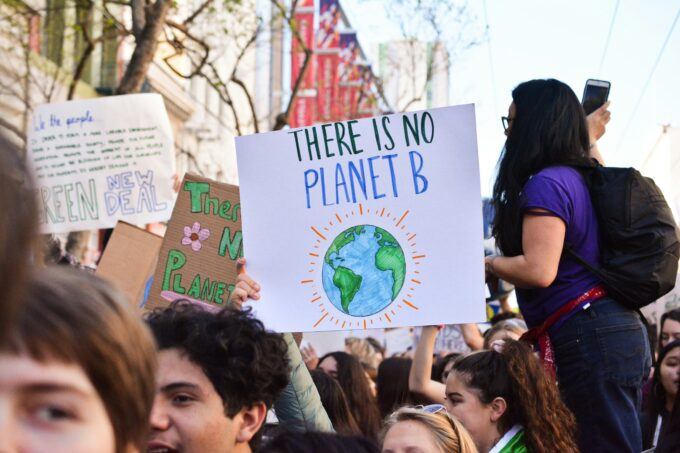
Image by Li-An Lim.
The ability to see and accept things as they are is difficult for us humans. We tend to repeat behaviors that fail to yield the results we want, lulling ourselves into the belief that this time the outcome will somehow be different. We mask our repeated endeavors as exercises in optimism even when we’re deeply mired in denial.
Yet, accepting reality as it is, including acknowledging moments of failure, is a prerequisite for making meaningful change. One of the stark realities we must face as a global community is that the system we established in 1992 in the international treaty known as the United Nations Framework Convention on Climate Change (UNFCC) which resulted in regular meetings of the state parties known as COPs (conference of the parties) is simply inadequate to the task.
This inadequacy applies in spades to the 21st COP which resulted in the 2015 Paris Climate Agreement that aimed to keep climate change from wreaking calamitous effects on our way of life and the environment. The system as crafted simply cannot deliver on its promises.
More specifically, the goal of limiting the rise in global temperatures to 1.5 degrees Celsius above pre-industrial levels is already beyond our grasp and the goal of keeping such a rise to well below 2 degrees is a chimera. For those who may have had doubts about the severity of the threat of climate change, the bitter reality of the historically unprecedented rise in global temperatures in the form of unprecedented droughts, floods, sea-level rise, destructive storms, wildfires, and catastrophic loss of biodiversity, is already with us.
The current system is replete with fatal flaws that include the following:
First, a reliance on voluntary pledges (or “nationally determined contributions” as they are termed in the Paris Agreement) representing efforts by each country to reduce national emissions and adapt to the impacts of climate change, simply does not work. Even if all the countries that signed on to the Paris Agreement were to fulfill the pledges they have given, current reports estimate that temperatures likely will still rise beyond the 2 degree Celsius outer limit we have set ourselves. As it stands, however, many countries are nowhere near fulfilling their pledges, putting us on the pathway to a rise in temperatures above pre-industrial levels ranging between 2.5 – 2.9 degrees Celsius by 2100. More importantly, there is no mechanism for holding nations to their promises. The system is therefore unfit for purpose and must be discarded in favor of an effective one.
Second, collective funding for activities like mitigation and adaptation and even research and development into alternative clean energy sources has proven challenging and generally unsuccessful, with poorer developing countries generally finding themselves supplicating, cap in hand, while richer countries respond by ducking and doing whatever it takes to limit their exposure.
Third, the rules governing the COPs require that all decisions be taken by consensus, effectively granting each member country the right to veto any agreement. The result is paralysis or at best agreement based on the lowest common denominator.
Given the degree to which the current COP system is flawed, it is time for us to find an alternative system to combat climate change that includes at its heart an effective pathway to reducing emissions. What humanity desperately needs at this stage in its collective development is a collective decision-making institution in the form of a World Legislature or World Parliament that is democratically elected by the people of the world and equipped with the authority to pass binding international laws in areas where global challenges like climate change demand global solutions.
Such a global body should be able, for instance, to pass binding legislation requiring a scheduled universal phase-down of the quantities of fossil fuel that nations can burn. It should also be empowered to levy limited taxes on each member of the global community. Just as we pay state and national taxes, so too, we could be required to pay a modicum of international taxes to defray the costs of meeting our global needs and solving our global challenges. Moreover, decisions of the World Legislature should be based on a two-thirds or other majority vote, rather than requiring unanimity. Last, but by no means least, it should have an enforcement mechanism to ensure that nations comply with the laws it passes.
In sum, it is time to courageously and humbly acknowledge that our COP system does not work and to boldly reimagine a new system for stemming global warming. In this endeavor we would do well to heed the following words of Robert Schuman uttered in 1950: “World peace cannot be safeguarded without creative efforts commensurate with the dangers that threaten it”.